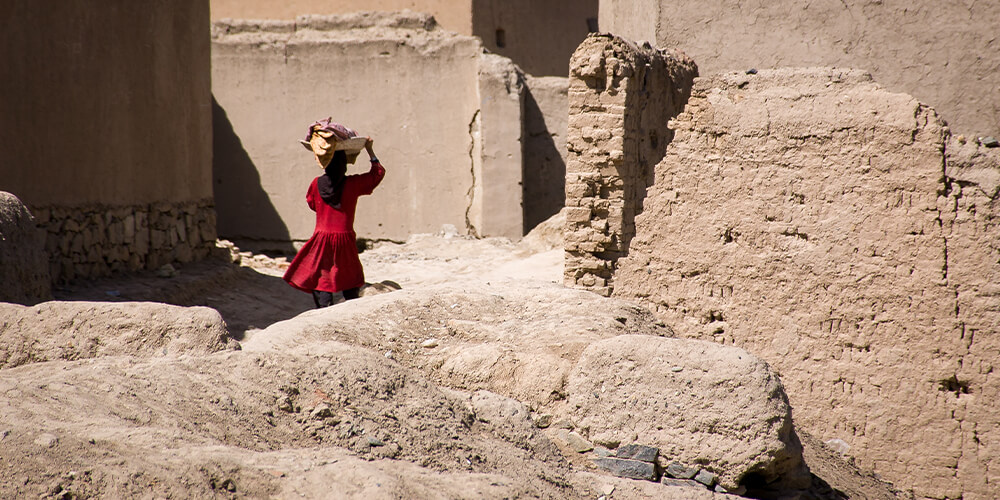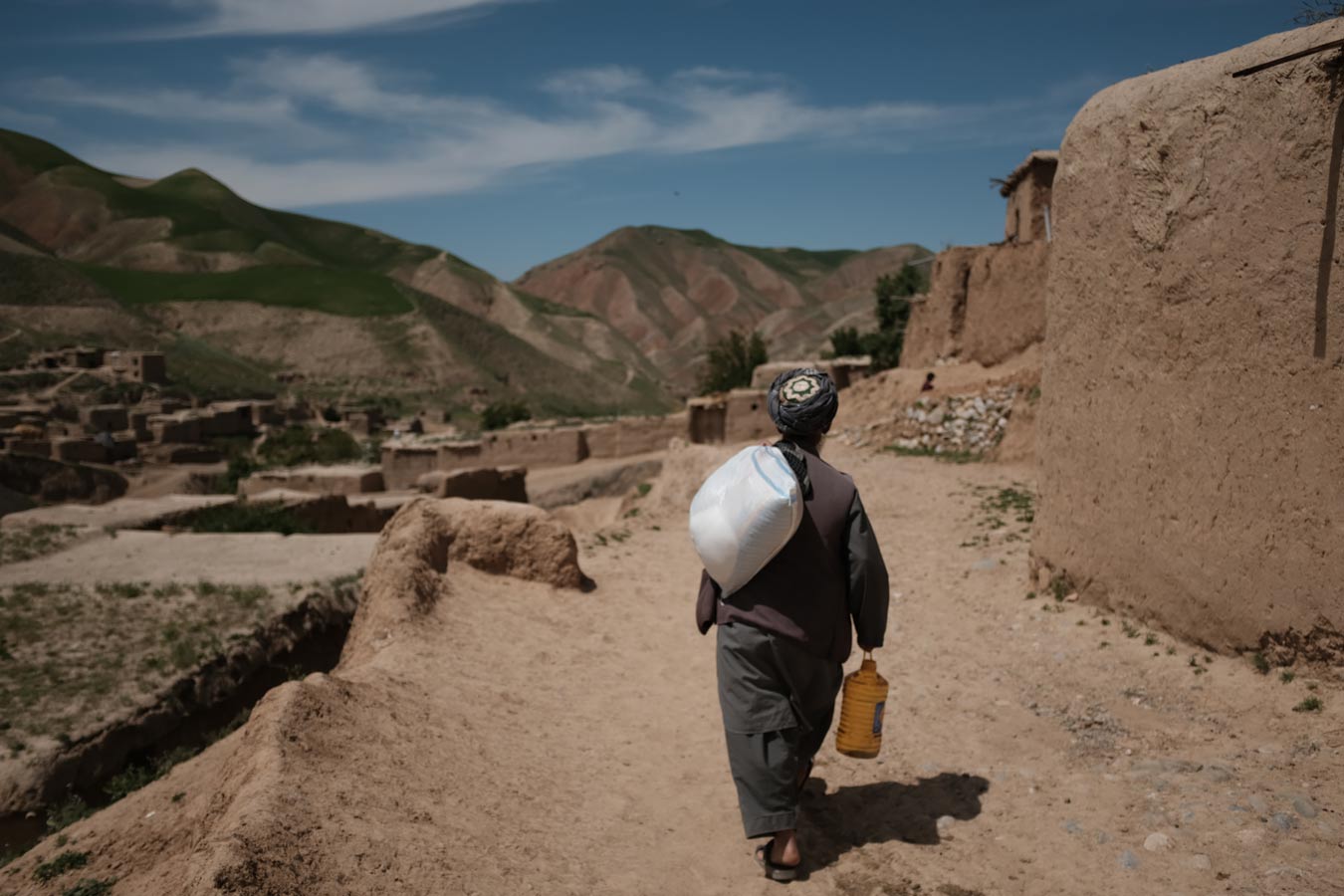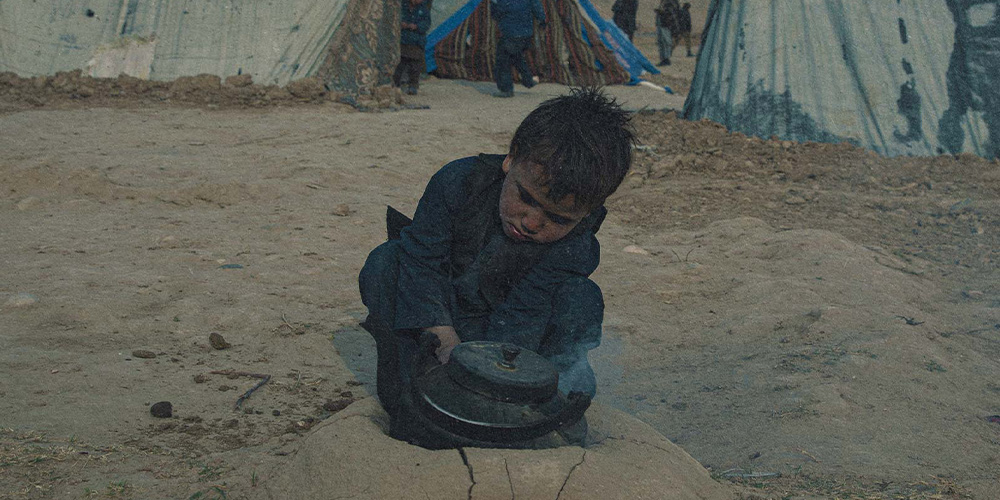
Update: 25.06.2022
On Wednesday 22nd June, at 01.30 local time, a powerful earthquake of magnitude 5.9 struck the mountainous region of eastern Afghanistan, with the epicentre in the Paktika province while most people were asleep.

The epicentre was in the Paktika province. The latest reports show more than 1,300 deaths and more than 1500 people injured. The earthquake destroyed homes and infrastructure, leaving families without shelter or access to essential services.
Islamic Relief’s emergency response team is distributing food parcels to families in Afghanistan’s Paktika province who were made homeless by Wednesday’s deadly earthquake.
In one village the team met survivors and heard how nine people from a single family, including four young children, were killed. They were asleep in their house when the earthquake struck in the middle of the night.
Islamic Relief is responding in Barmal district, which is one of the worst affected areas and has received little aid so far. Access to the area has been extremely challenging due to the remote, mountainous location and heavy rains. The Islamic Relief team is aiming to deliver vital food supplies to more than 2,000 families over the coming days.

The situation right now:
The earthquake is certain to make what is already one of the world’s biggest humanitarian crises even worse. Afghanistan is struggling in the face of an economic crisis and sanctions, with spiralling food prices, record unemployment and a critical shortage of cash. 24 million people, more than half of the population, are now in need of humanitarian aid and malnutrition among children is rising as most families cannot afford enough food. Islamic Relief is calling on the international community to help provide emergency aid but also work to address Afghanistan’s economic collapse.
Islamic Relief is now responding to this urgent emergency, providing support for the families affected by the earthquake. We urge you to help us in our efforts to provide relief for those who have lost so much. Together, we can make a difference for those who need it most.
Islamic Relief is now responding to this urgent emergency, providing support for the families affected by the earthquake. We urge you to help us in our efforts to provide relief for those who have lost so much. Together, we can make a difference for those who need it most.
Years of protracted conflict, climate change and now Covid-19 and the current political turmoil have pushed Afghanistan into one of the world’s worst humanitarian crises. Millions of lives are at stake.
The situation right now:

Families across Afghanistan are running out of food. 23 million people – more than half of the population – now face going hungry every day, and nearly 9 million people are just one step away from famine. Half of all children under five years old are expected to suffer from malnutrition this year. We are now heading into the coldest months of winter, when temperatures plummet below freezing, and many vulnerable families are at risk of perishing.
90 percent of people – including children and people with chronic or life threatening illnesses – do not have access to decent healthcare.

As winter approaches and poverty rises, conditions are rife for a potential cholera epidemic.Almost 600,000 people have been displaced within Afghanistan so far this year
Since the start of the year, escalating conflict and extreme hunger has forced nearly 700,000 people to flee their homes and seek safety elsewhere within Afghanistan, and more families have fled the country completely.
As needs increase, the current uncertainty and insecurity mean that much vital humanitarian work is on hold. It In recent years, even before the latest political changes, more than 2.2 million girls were out of school – 60 percent of the total out-of-school children in the country.
Islamic Relief has worked in Afghanistan since 1999 and is one of the few agencies to operate continuously throughout this difficult period. We have a team of almost 250 staff – nearly half of whom are women – and projects in 35 districts, providing emergency relief and long-term development across the country. We work impartially, in accordance with humanitarian principles, and support women and men of all ethnicities and religions. Last year alone our work in Afghanistan supported almost half a million (484,777) women, men and children.

Right now we are delivering life-saving food aid to thousands of people suffering from the growing hunger crisis. Islamic Relief teams are distributing parcels containing flour, oil, pulses, rice, sugar and salt to more than 11,000 families in Kabul, Nangarhar, Balkh, Bamiyan and Kapisa provinces.
We are also running eight mobile health teams, which provide the only source of healthcare for many people in remote rural areas, and distributing hygiene and water storage kits to help prevent the spread of illnesses. As winter approaches we are distributing heaters and fuel, blankets, clothes and shelter materials to thousands of families. We also have psychological support staff carrying out home visits to support people’s mental health needs after years of conflict and crisis.
Long-term we aim to work with Afghan communities and civil society to help build a better future for the country, where every person lives in safety, has access to food, shelter, healthcare, water and education, and has the skills and opportunities to earn a sustainable living. Our long-term work in Afghanistan also includes:
We also support Afghan refugees all over the world, including in the US, UK and Europe – such as providing hot meals to new arrivals as well as legal assistance and mental health support.
Sign up to our mailing list to get exclusive access to members only offers and pre-release content.



